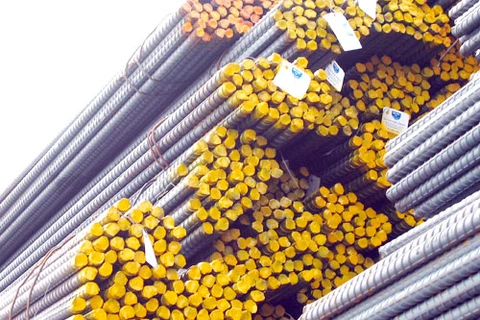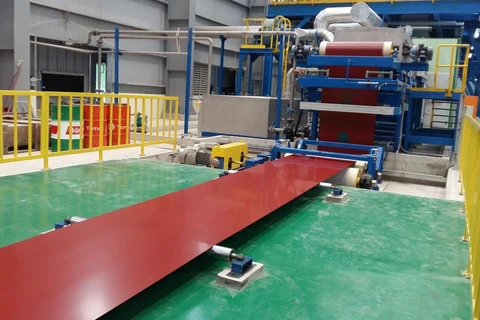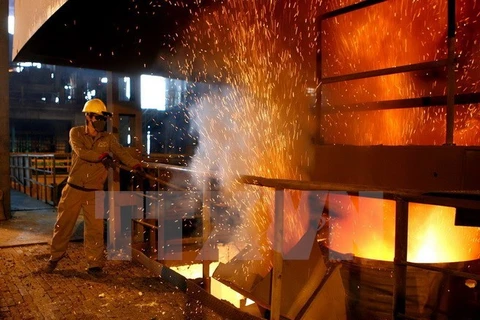Hanoi (VNS/VNA) - Hoa Phat Group’s Dung Quat project will increase steel supply, leading to change market shares of steel firms on the domestic market, according to KIS Vietnam Securities Corporation (KIS).
KIS said it will also increase competition among rival steel providers.
The Dung Quat project will begin next year and will double output of steel products to 4.35 million tonnes per year in the first stage.
With the current domestic market demand, the increase of supply (equivalent to 18 percent of the total domestic market consumption) would cause short-term oversupply.
KIS estimates that Vietnam's long steel consumption growth will fall to 5.5 percent because of weaker consumption comes in both export and domestic markets.
For the export market, despite the strong growth of steel exports to Cambodia, reduction of import demand to the Republic of Korea and Thailand made Vietnam’s steel exports in the first 10 months this year increase by 6.5 percent year on year. Meanwhile, this figure in the same period of 2017 was more than 34 percent.
For the domestic market accounting for 90 percent of total steel demand, authorities in some large cities like HCM City have reviewed the approval process of many real estate projects which has slowed down steel consumption.
This situation could continue until the end of 2020, KIS said, so some steel producers have begun to look for new opportunities in other cities.
KIS expects long-term steel consumption growth will stabilise at 5.5 percent by 2020.
According to KIS's estimates, Hoa Phat will supply 3.88 million tonnes of steel by 2020, leading to its market share at 35 percent.
A similar situation will happen for flat steel products in the second phase when the Dung Quat project markets its hot-rolled coil (HRC) steel.
When the second phase is completed midway through next year, it has a capacity of 2 million tonnes of HRC per year./.
KIS said it will also increase competition among rival steel providers.
The Dung Quat project will begin next year and will double output of steel products to 4.35 million tonnes per year in the first stage.
With the current domestic market demand, the increase of supply (equivalent to 18 percent of the total domestic market consumption) would cause short-term oversupply.
KIS estimates that Vietnam's long steel consumption growth will fall to 5.5 percent because of weaker consumption comes in both export and domestic markets.
For the export market, despite the strong growth of steel exports to Cambodia, reduction of import demand to the Republic of Korea and Thailand made Vietnam’s steel exports in the first 10 months this year increase by 6.5 percent year on year. Meanwhile, this figure in the same period of 2017 was more than 34 percent.
For the domestic market accounting for 90 percent of total steel demand, authorities in some large cities like HCM City have reviewed the approval process of many real estate projects which has slowed down steel consumption.
This situation could continue until the end of 2020, KIS said, so some steel producers have begun to look for new opportunities in other cities.
KIS expects long-term steel consumption growth will stabilise at 5.5 percent by 2020.
According to KIS's estimates, Hoa Phat will supply 3.88 million tonnes of steel by 2020, leading to its market share at 35 percent.
A similar situation will happen for flat steel products in the second phase when the Dung Quat project markets its hot-rolled coil (HRC) steel.
When the second phase is completed midway through next year, it has a capacity of 2 million tonnes of HRC per year./.
VNA
























